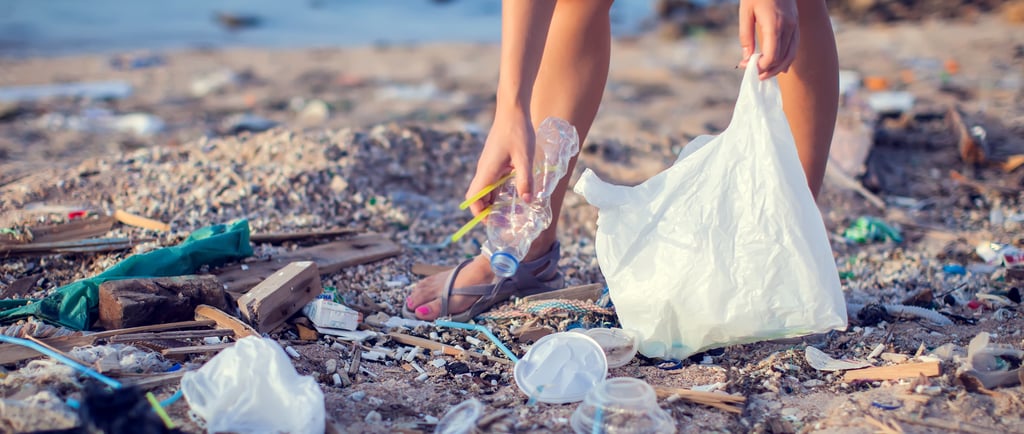Plastic Peril: Unveiling Its Devastating Impact on Our Planet and Health
7/7/20253 min read


There have been some pretty alarming headlines about plastics lately, and it’s important to realize the implications they have on the planet and our individual health.
Plastic Free July is a call for all of us, across the globe, to decrease the use of plastic significantly. I'm sure you can understand why this is a priority.
According to studies, plastics have been found in what unusual places?
A. Human hearts
B. The Mariana Trench, the deepest point in the ocean
C. The peak of Mount Everest
D. Several remote, uninhabited islands in the South Pacific
E. All the above
We have a complex relationship with plastic. It's foundational in so many products we use daily. Many of us often don't even think about it. However, the convenience it has brought into our lives has an ugly and destructive impact that we all need to be aware of.
Sadly, we all see the havoc that plastic pollution is wreaking on our environment each day. Plastics are posing a multifaceted threat to ecosystems worldwide. From our oceans to our soil, plastic waste has infiltrated every corner of the planet, endangering marine life, wildlife, and human health. Discarded plastic items, from bottles to bags, break down into microplastics that contaminate waterways, soil, and air, persisting for centuries and leaching harmful chemicals into the environment. These microplastics are ingested by marine animals, leading to entanglement, suffocation, and starvation, while also entering the food chain and potentially harming human health. Plastic pollution also disrupts ecosystems, clogging waterways, smothering habitats, and altering natural processes.
You’ve probably heard about the Great Pacific Garbage Patch, a massive floating island of plastic trash swirling around in the ocean. It’s just one of many garbage patches littering our seas, harming marine life and polluting our precious ecosystems. And it’s not just the big stuff we need to worry about; tiny plastic particles are finding their way into our soil, our air, and even our bodies.
Take, for instance, a study reported in Science Daily that found bottled water can contain hundreds of thousands of previously uncounted tiny plastic bits. Yep, you read that right. A liter of water from plastic bottles can contain around 240,000 detectable plastic fragments. That’s a big deal, especially when you consider that previous estimates were way lower, mainly because they didn’t account for these super tiny plastic pieces called nanoplastics.
But it’s not just about what’s in our water; it’s also about what’s in our food. Consumer Reports tested nearly 100 foods and found bisphenols and phthalates, two types of chemicals found in plastics, in all. Phthalates, in particular, were found in high levels in almost every food they tested. And here’s the kicker: these chemicals mess with our bodies in a bunch of ways. They can throw off our hormones, negatively impact our metabolism, and even harm our brains, causing things like memory problems and inflammation.
So, what can we do about this? One of the easiest ways to tackle this issue is to avoid foods that come packaged in plastic. Instead, go for whole foods that you can cook and store yourself using glass or stainless steel containers. Not only does this help cut down on the plastic that ends up in our bodies, but it also reduces the amount of plastic waste we produce. And when it comes to drinking water, using glass or stainless steel bottles is crucial. But that’s not all—investing in a high-quality water filter is just as important. A good filter can help remove those pesky nano- and microplastics from your tap water, ensuring that what you’re drinking is as clean and plastic-free as possible.
Additionally, we can reduce our use of single-use plastics like straws, bags, and utensils. Bringing our own reusable alternatives when we go out to eat or shop can make a big difference. We can also support companies and organizations that are working to find solutions to the plastic problem, whether it’s developing biodegradable plastics or cleaning up our oceans. And perhaps most importantly, we can spread the word and educate others about the dangers of plastic pollution and the simple steps we can all take to make a difference.
In conclusion, the plastic predicament is a serious issue that affects us all. From the water we drink to the food we eat, plastic pollution is everywhere, and it’s taking a toll on our health and our planet. But by making small changes in our daily lives and advocating for larger systemic changes, we can work together to tackle this problem and create a cleaner, healthier future for generations to come. So let’s roll up our sleeves and get to work—we’ve got a planet to save!
